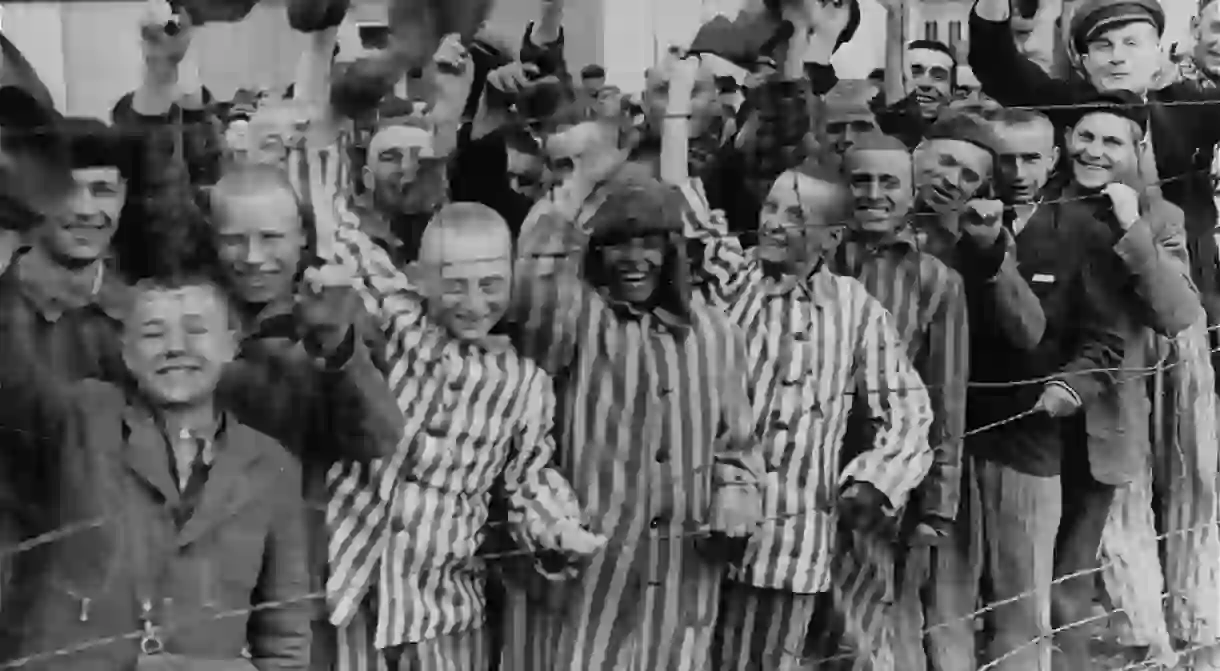Breathtaking French Literature Written During the Holocaust

Holocaust testimony is haunted by its own impossibility, where no words could possibly communicate the horrors of being imprisoned in a concentration camp.
The chilling literature of Charlotte Delbo, Sarah Kofman, and Robert Antelme—about being imprisoned in Nazi camps—demand a different mode of reading. They are not imposing meaning, as we might be used to, but are constantly interrogating themselves and investigating what’s at stake in the use of language they adopt. They hesitate in the liminal space between life and death, questioning all truths and resisting burial.
Sarah Kofman’s Paroles Suffoqués (Suffocated Words)
This work explores the impossible paralyzing “double-bind” of trying to speak of an experience so horrendous that it cannot be spoken. She describes how the words just cannot escape her throat, how she is choking on the unspoken words, and suffocated by the collective mass atrocity. They suffocate and literally take the sufferer’s breath away in a symbolic reference to the gas chambers in the concentration camps.

The idea of language having materiality and real texture is another innovative theory that ripples beneath the surface of this work. Her textual account is like a bandage to bodily wounds and skeletal frames—a healing process that plays out through the layering of intertextual references to a range of genres like autobiography, literary criticism, and politics, with a plurality of voices and quotes from various people.

It promotes a new model of testimony that is based not on individual subject positions, but on the dissolution of boundaries in order to speak for all.
Charlotte Delbo’s Aucun de nous ne reviendra
Charlotte Delbo testifies about her horrendous experience in the Auschwitz-Birkenau and Ravensbruck concentration camps during World War II in her trilogyAuschwitz et après (Auschwitz and after). The volume is composed of three books—Aucun de nous ne reviendra (None of Us Will Return) (1965), Une connaissance inutile (Useless Knowledge) (1970), and Mesure de nos jours (The Measure of Our Days) (1971). These pages are packed full of poetic reflection on her unbearable survival, which is actually portrayed as living death.

The testifying self is paralyzed, caught between the need to forget the horrendous ordeal and step forward to the future and the need to share the truth, which is to step back into the past. The narration focuses on dehumanization, with the prisoners being numbered rather than named. It is this repeated dehumanization that leads to problems of self-possession, where even the prisoners no longer recognize themselves or possess control.
Charlotte Delbo’s Une connaissance inutile
This book explores Delbo’s struggles of reintegrating back into daily life after liberation from the camps. The notion of duality is at the heart of this text, revealing a split and broken self that cannot be pieced back together.

Delbo describes how her Auschwich self is locked inside her current self, rippling out in existential rupture. It is through the uncanny spectral imagery that doubts are casted as to whether the animate being is alive at all. “Je vis dans un être double […] Il y avait moi et un spectre de moi qui voulait coller à son double et n’y arrivait pas” (I live in a double existence […] there was me and a ghost of me who wanted to press itself against its double but couldn’t do so).

Delbo presents a model of “dissociated traumatic memory.” This is where traumatic memories can’t be regulated directly into the consciousness, because they are so painful, instead being contained in an alternate state of consciousness. Through her repeated night terrors we learn that memory is not just a thing of the mind, but is tied to the body, locked within the texture of skin, and played out in action, not words. She suggests a form of non-return.
Robert Antelme’s L’Espèce humaine (The Human Race)
When Antelme was deported (after being involved in the French Resistance), the only recognizable attribute that allowed him to be identified by people who once knew him was the gap in his teeth. His body had been almost destroyed beyond recognition. This was because the Nazis aimed to break down the subjective stance of their prisoners to turn individual human beings into a collective vegetative mass.

But in L’Espèce humaine (The Human Race) (1947), Antelme writes about how the human species consists of an irreducible residue that simply can’t be destroyed. The body can be beaten and blood can be shed, but it can never be transformed into anything less than human.













